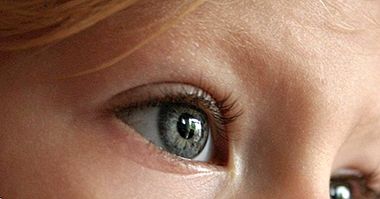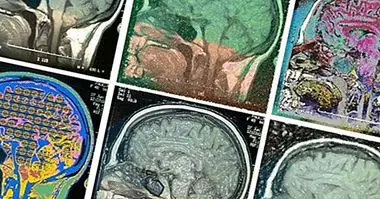The 5 types of intellectual giftedness (and its characteristics)
Human intelligence is the capacity that allows the person to learn, understand, reason and make decisions in relation to their surroundings. When these capacities are innately superior to those of other people you can talk about giftedness .
Gifted people are those who enjoy superior intelligence, remarkable creativity and extreme curiosity. All this turns these people into beings with special needs and demands, being of great importance, in the case of children, a specialized professional orientation.
- Recommended article: "The 12 types of intelligence: which one do you have?"
What is giftedness?
The term intellectual giftedness refers to those people with superior intellectual abilities compared to the average abilities that determine the various tests of the IQ assessment. Specifically, the World Health Organization (WHO) establishes that a gifted person is one who has an IQ higher than 130 points .
Likewise, a distinction must be made between giftedness and a person with notable concrete abilities, since the first is considered innate and it is not possible to achieve it through practice and the second is achieved through teaching and / or repetition.
However, giftedness does not have to be a general level, this can occur in a specific field of knowledge. A person can be born with special aptitudes or gifts for music but not for mathematics.
Model of the three rings
The specialist in giftedness Joseph Renzulli (1936) developed a model called Model of the three rings, which examines the particularities that a child or gifted person should have for distinguished as such.
According to this model, a gifted person must have a perfect and balanced combination of these three qualities:
- High intelligence : the person must have high capabilities in terms of their information processing system.
- Creativity: must be a creative person with divergent thinking.
- Involvement in tasks : the person must be sufficiently motivated to ensure the success of their potential.
Types of giftedness
Within the framework of Spanish legislation, specifically in the Regulation of Students with Special Educational Needs, the existence of different types of giftedness is distinguished.
This distinction is made based on whether the person has a creative giftedness or a giftedness with high IQ.
1. Creative giftedness
People who are credited with creative giftedness they are characterized by a hyper-development of their sense of humor, and a playful disposition which is extrapolated to all areas of your life.
Usually, professionals find many difficulties when it comes to recognizing this type of giftedness, since traditional intelligence tests are not useful for it. However, there is a little known test to evaluate people with this type of skills and is the The Torrance Test of Creative Thinking (TTTC).
The features that are examined in this test are:
- Originality
- Fluency in ideas
- Elaboration
- Sense of humor
- View of unusual perspectives
- Wealth in the imagination
- Imaginative quality
- Resistance to closure
- Abstraction of titles
- Ability to extend or break unions of complete forms
2. Giftedness with high IQ
People with an IQ score over 140 points They are considered as people with a high general intelligence. But within this category three groups can be distinguished:
2.1. Gifted in a privileged context with an IQ around 140
These people understand teaching as something playful. In children, these are able to keep the mind active and attentive for much longer than the rest of their peers who have an intelligence closer to the average. They are able to sustain their activity for longer and tend to present a sleep pattern with fewer hours than usual.
As for personality traits, they are often confident and nonconformist, and show very critical attitudes compared to other children, sometimes overestimating themselves.
In addition, they enjoy great talent to solve problems, as well as a high capacity for reaction and endurance in tense or stressful situations. Although, occasionally, they fail in their sensitivity due to their high self-esteem and self-confidence.
2.2. Gifted with scarce economic resources
Unlike the previous ones, gifted people with limited financial resources have considerable emotional sensitivity , to the point of becoming self-incriminated for possessing skills at a much higher level than their peers.
This emotional sensitivity makes them be much more kind to their peers and develop a great sense of friendship. In addition, they often feel the need to make a good impression and please as many people as possible.
For all this, they tend to be very well valued by colleagues and teachers, and tend to end up being group leaders but without presenting positions of authority or dominance. Likewise, they are characterized by being more conformist and less spontaneous, possessing a much higher integration of rules and regulations.
The gifted people raised in contexts of scarce resources present a great fear of failure, so, usually, they do not have to risk too much. In children, they tend to be much more aware of the reality that surrounds them, this vision can be reflected in different areas:
- Great esteem for the school and to the different means of learning
- Learning in a joint way , relating all the theories with the context that surrounds them
- Chores , occupations and interests less childish.
2.3. Gifted with extreme precocity
The third subgroup of this category is made up of those people who together with their giftedness present some type of serious personality disorder , which in most cases presents as schizophrenia.
These people take refuge in occupations and intellectual hobbies that separate them from psychosis and help them to simulate a common way of life, it can be said that it is a defense mechanism in the form of regulatory therapy.
During the childhood stage, these children have great obstacles to maintain any type of relationship with their peers, so, generally, they end up being marginalized by their peers, reaching the point of suffering from an affective disorder.
In addition, they are able to relate everything they have learned to reality, sometimes presenting strange behaviors and sudden and unexpected reactions. This capacity for understanding leads them not to tolerate certain behaviors, and being aware of their high capacities respond in an aggressive and scathing way.
Despite this, they enjoy a speed for meaningful learning, as well as outstanding communication skills , being the elaborate and concise speech very characteristic of these people.



















